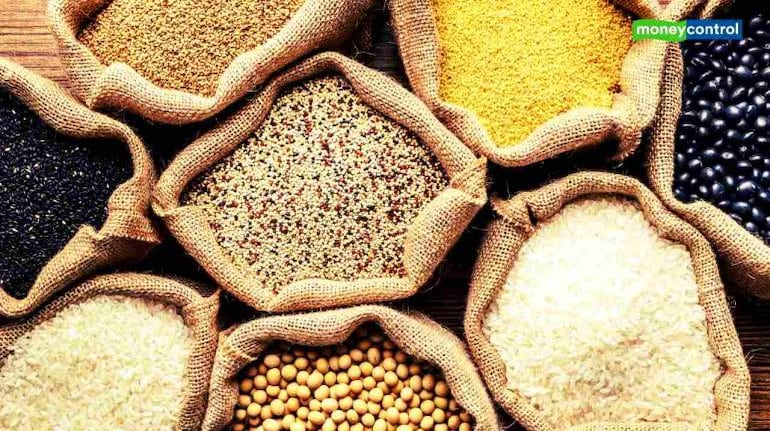



Subramani Mancombu
Global agricultural markets are likely to rule firm this year as they are set to receive continued support from China and weather-related developments that could affect the production of crops.
China will mop up stocks in trying to ensure food security for its citizens and as production of its pig herds recovers after the African swine fever (ASF) outbreak wreaked havoc in 2018 and 2019.
According to Trading Economics website, agricultural commodities such as soybeans, wheat, corn and sugar have gained at least 10 percent since last month.
Dutch multinational banking and financial services ING’s head of commodities strategy Warren Patterson said that soybeans, corn, wheat and sugar have all seen a significant increase in Chinese buying in 2020.
China’s soybean imports during January-October 2020 were higher by 18 percent year-on-year, corn shipments into the country were up 97 percent, sugar imports increased by 28 percent, and wheat purchases by 163 percent.
Though China’s phase-I trade deal with the US played a role in imports of some of these commodities, further support had come from the recovery in pig herds in China.
China accounts for over 310 million pigs of the 677.6 million pigs produced globally for meat consumption worldwide.
Patterson said the Chinese government had accorded priority to increasing pork production, after the ASF outbreak saw pig herds fall to a 16-year-low in 2019. This pushed up prices of pork, a sensitive food in China which is the world’s largest consumer of the meat.
Patterson has drawn the inference from the Chinese data that showed a nearly 27 percent increase in pig herds in October compared with the year-ago period.
This is seen as the primary reason for the strong demand growth for animal feed in China. This has, in turn, supported corn and soybean prices in the global market.
A Chinese government report said that breeding of live pigs had increased rapidly, while production and sales of breeding pigs were booming.
Production of live pigs witnessed nine months of consecutive growth and in October were up 3.87 percent year-on-year.
Pig production had recovered to 88 percent of the levels seen at the end of 2017 and by the second quarter next year, the Chinese pig stock would return to normal levels, it said.
Growers actively replenished and expanded their stocks with 728 newly constructed large pig farms going on stream in October.
This follows China’s effort in building industrial pig farms near urban centres, undoing its earlier policies during 2015-17 of relocating the farms on concerns over waste generated by these farms. The new farms are, however, less labour intensive and require less land.
China, where the average consumption of pork is 30 kg a year per person, plans to increase its pigs production by 200 million. The ASF, which broke out on its borders with Russia in August 2018 before spreading to the entire country, had left over 350 million pigs dead, including 200 million that were culled due to the outbreak.
Since the beginning of 2020, at least 13,000 large scale pig farms were set up, while 15,000 other such farms had resumed production after being affected due to ASF.
This has resulted in prices of piglets dropping 50 percent and pork prices too have declined sharply, the Government report said.
Patterson said that China had to rebuild its stocks as it had utilised them and thus, corn had good long term prospects.
The trend would additionally be aided by China’s mandate to opt for 10 percent ethanol blending in petrol. The blending programme was suspended last year owing to tight stocks and limited production capacity.
China had agreed to expand buying US goods and services by a combined $200 billion over 2017 levels during 2020 and 2021. But it had met only 58 percent of its target till now.
It will now try to meet the target by resorting to buying agricultural commodities which will, in turn, support those markets.
ING’s Patterson says that US corn sales to China is the largest since 2012-13, exceeding Beijing’s annual import quota of seven million tonnes.
On the other hand, the US had made a commitment to sell a record 29.2 million tonnes of soybean to China in the current marketing year to August with actual sales trebling year-on-year.
The US Department of Agriculture (USDA), on the other hand, has projected China’s soybean demand at 100 million tonnes this marketing year to September, while other analysts see the demand exceeding the projection.
The USDA has pointed out to the Chinese Agriculture Ministry which expects the country’s hog production to recover fully by the first half of this year - a pointer on how the agricultural commodities market could rule firm.
The global agricultural market will also be supported by the La Nina weather event, a global atmospheric-oceanic phenomenon caused by a decrease in sea surface temperature in the Pacific Ocean.
Pakistan, Afghanistan, Iran, Iraq, the Philippines, Indonesia, Kenya, Somalia and Ethiopia are among the nations that could be affected by La Nina, which can cause heavy rain and flooding in some parts of the world and drought in others.
The Food and Agriculture Organisation, an arm of the United Nations, had predicted that the La Nina event could last at least till March.
It has warned that there are chances of it extending till June this year. Thus, agricultural commodities could get additional support from these developments.
(Subramani Ra Mancombu is a journalist based in Chennai, who writes on topics in commodities and agriculture)
Disclaimer: The views and investment tips expressed by investment expert on Moneycontrol.com are his own and not that of the website or its management. Moneycontrol.com advises users to check with certified experts before taking any investment decisions.
Discover the latest Business News, Sensex, and Nifty updates. Obtain Personal Finance insights, tax queries, and expert opinions on Moneycontrol or download the Moneycontrol App to stay updated!